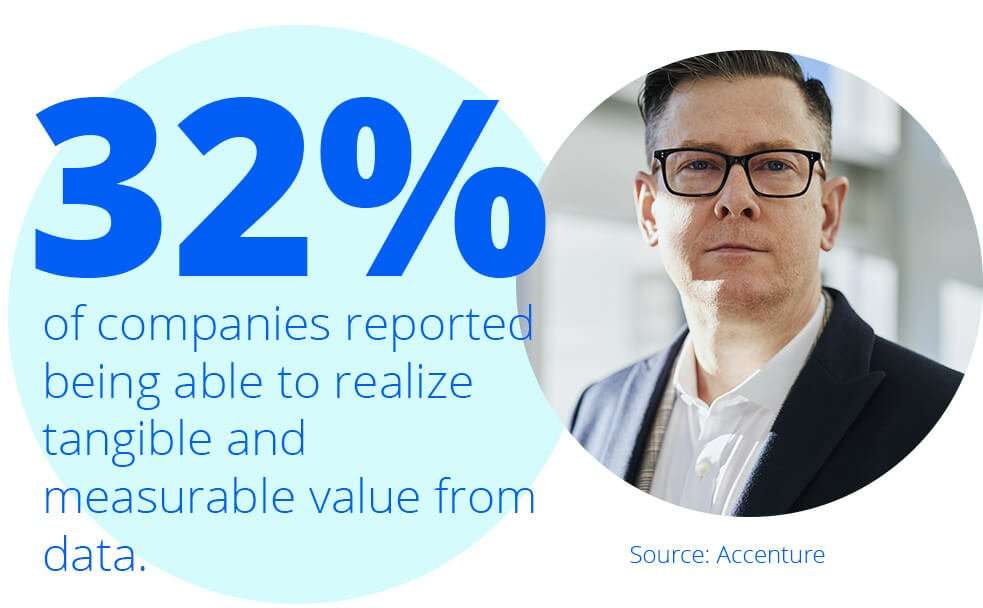Enterprise Marketing is a comprehensive B2B marketing approach that focuses on driving growth, nurturing long-lasting customer relationships, and scaling business operations in the corporate world.
As a marketing leader, mastering the art of Enterprise Marketing is essential for steering your organization toward success.
In this article, we’ll explore the various strategies that make Enterprise Marketing unique and relevant to your marketing endeavors.
Defining Enterprise Marketing
At its core, Enterprise Marketing involves tailoring marketing strategies specifically for businesses and organizations rather than individual consumers.
It’s all about connecting with other businesses, understanding their needs, and delivering value through tailored solutions.
The target audience comprises C-level decision-makers, executives, and purchasing teams within large enterprises.
The Distinct Nature of Enterprise Marketing
B2B marketing sets itself apart from B2C (Business-to-Consumer) marketing by focusing on a different customer journey and customer personas.
B2B marketing typically involves longer sales cycles, higher-value deals, and a deeper understanding of complex business needs.
However, as I mentioned, in enterprise marketing the target audience comprises C-level decision-makers, executives, and purchasing teams within large enterprises.
In my opinion, this is an important difference when compared to general B2B marketing.
B2B (Business-to-Business) marketing is a broader term that simply expresses marketing to other businesses, no matter the sizes and characteristics.
Take into account that businesses have different characteristics.
Thus, these characteristics determine how marketing and sales leaders target existing and potential B2B customers.
For instance, let’s say your organization markets software de video marketing personalizado to help businesses engage with their distracted customers.

The marketing and sales strategies used to attract small, local advertising agencies that only need a few users are different from those for multinational agencies that need thousands of users with varying permissions and management levels.
In both cases, we are talking about B2B marketing.
However, the second one, the one targeting multinational agencies, requires an enterprise-level approach.
Also, for example, enterprise clients typically require vendors to have an ISO 27001 certification to meet legal and compliance needs.
Then, as you’ll learn today, enterprise marketing strategies can be slightly different.
There are a few reasons for this, but to name a few:
- The sales processes tend to be longer
- There are multiple decision-making layers
- It often involves multi-year engagement
- There are more legal and compliance requirements
- The deal sizes are bigger.
- It often requires land-and-expand, account-based marketing.
The Evolving Landscape of Enterprise Marketing
In recent years, B2B marketing has undergone significant transformations, primarily driven by advancements in technology and changing buyer behavior.
Understanding these shifts is essential for staying ahead in the competitive B2B market.
The reality is that nowadays almost every organization has access to the same tools to deliver engaging digital experiences.
What differentiates these organizations in enterprise marketing is their goals, mindset, and strategy in engaging with their audience.
Embracing Digital Transformation
The digital landscape has changed the way businesses operate and engage with customers, especially through digital marketing channels.
Then, as an enterprise marketer, embracing digital transformation is crucial to meet the demands of the modern B2B audience.
This digital transformation needs to be based on your target audience’s context.
Sin embargo, in a market where we are all constantly bombarded with irrelevant messages, relevancy is your best ally.
In many cases, this relevancy has been limited to face-to-face interactions.
But it is important to understand that digital enterprise marketing requires a multichannel approach.
Effective multichannel marketing, then, takes place when every interaction is based on the individual customer’s context.
Crafting a Customer-Centric Approach
Customer-centric marketing focuses on your customers’ needs and interests in all decisions related to advertising, selling, and promoting products and services.
This also takes into account all customer-brand interactions.
In the end, enterprise-level buyers and customers are people.
Well, studies show that 76% of consumers get frustrated at organizations that don’t deliver a personalized experience (McKinsey & Company).
This is one of the reasons why more and more enterprise marketing teams are embracing personalization.
When your enterprise marketing program is based on the particular needs of your individual customers, it becomes more effective.
Establishing strong relationships with clients is fundamental to success in Enterprise Marketing. The only way to make these interactions effective is if they are focused on your customers.
esta es una de las razones del porque vídeos personalizados is becoming more popular among enterprise companies.

By focusing on building trust and providing exceptional service, you can secure loyal customers who stay with your brand for the long haul.
Now, let’s cover some go-to strategies to engage with enterprise clients across the customer journey.
Utilizing Customer Data Effectively
Leveraging customer data allows enterprise marketers to gain valuable insights into clients’ needs, pain points, and preferences.

It is the key to achieving more effective customer-centric enterprise marketing.
With this knowledge, you can create highly targeted and campañas de marketing personalizadas that resonate with your enterprise customers.
In fact, in research conducted by Accenture, 32% of companies reported being able to realize tangible and measurable value from data.
Content Marketing for B2B Success: Leveraging Educational Content
Let’s keep in mind that enterprise sales cycles often last more than six months.
Esta es la razón por it requires many touchpoints to increase engagement with different stakeholders and influencers.
Educational content, such as whitepapers, webinars, and guides, can position your B2B company as a thought leader in the industry and help prospects make informed decisions.
Being recognized as a thought leader in your field can enhance your business’s reputation, attract valuable clients, and create new opportunities.
The Power of Personalization In Enterprise Marketing
In the B2B world, one size does not fit all.
Tailoring solutions, campaigns, and messages to fit each client’s needs shows a strong understanding of their challenges and a genuine commitment to their success.
In my experience, the best way to do this, following a customer-centric culture, is through personalization in marketing.
As an enterprise marketer, you can use structured and contextual customer data in every interaction and message.
As a result, your marketing will be more effective because it will be based on your target audience’s individual context.
Nowadays, most enterprise marketing tools have built-in personalization capabilities.
For instance, tools like HubSpot, Salesforce, or Marketo.
Similarmente, there are personalization tools that work in conjunction with these marketing automation tools to help you boost engagement across the customer journey.
A clear example is our very own personalized video software, Pirsonal.

With personalized videos, B2B organizations make the type of content we all love—video—more relevant and, as a result, more effective.
Organizations use personalized videos in a variety of situations to engage with customers. Here are some examples:
- To accelerate time-to-value through personalized customer onboarding.
- To make account-based marketing more relevant and accelerate sales.
- To explain complex products and services, for example, in the financial services industry.
- To build lasting relationships with stakeholders, buyers, and users.
- To reduce complaints with timely communications that anticipate customer’s concerns.
- To boost brand reputation and credibility, for instance, through brand anniversary communications.
- To communicate critical information shared by C-level executives.
- To educate customers and drive product and service adoption through vídeos interactivos.
- Y más.
Implementing Account-Based Marketing (ABM)
Account-Based Marketing is a powerful strategy that involves targeting specific key accounts with personalized marketing efforts.
By focusing your resources on high-potential clients, you can significantly increase your chances of converting them into loyal customers.
Building a Strong Brand Presence
In the B2B world, reputation matters. A strong brand reputation instills confidence in potential clients and can be a differentiating factor when competing for business opportunities.
Then, your B2B brand should not only be visible but also actively engaged with your audience.
Social media, thought-contextualized content, and meaningful interactions can help forge meaningful connections with your target market.
Leveraging Marketing Technology
Efficiently managing client data and automating repetitive marketing tasks allows your enterprise marketing team to focus on building relationships and developing innovative strategies.
CRM and marketing automation tools are great tools to make this happen.
Chances are your organization already uses one. However, one of the key challenges I see teams facing is adoption.
Modern tools can help you save an insane amount of time in the management of your relationship with clients in an automated fashion.
En mi experiencia, enterprise customers love organizations and people that are responsive.
And, in a digital world, software can help you do just that.
Also, with the most advanced tools and a little help from AI, your team can utilize predictive analytics.
These technologies can help you make data-driven decisions, predict customer behavior, and identify potential opportunities in the market and accounts.
Team Collaboration and Alignment
Successful Enterprise Marketing requires seamless collaboration between various departments, such as marketing, sales, and customer support.
Breaking down silos fosters a unified approach toward achieving common goals.
Alignment between marketing and sales teams ensures that both are working towards the same objectives, resulting in increased efficiency and a smoother customer journey.
To make this work, identify the right Key Performance Indicators (KPIs).
In enterprise marketing, it is crucial to track the success of every aspect of your program.
These metrics should align with your enterprise’s overarching goals.
By doing this, you’ll be able to know where to focus your tactics and iterations.
Regularly analyzing the performance of your marketing campaigns allows you to make data-driven adjustments and continuously optimize your approach.
Navigating Challenges in Enterprise Marketing
Finding the right balance between immediate results and long-term growth strategies can be challenging.
For instance, in B2B marketing, dealing with extended sales cycles, multiple decision-makers, and intricate procurement processes requires patience, resilience, and strategic planning.
I believe that innovation is essential for staying ahead in the dynamic B2B market.
Because of this, my recommendation is that you embrace new technologies and trends to remain relevant and responsive to customer needs.
However, don’t just adopt innovation because it is there.
Do it because it helps you serve your audience better and because it helps you accomplish the goals of your team, department, and organization.
This is why applying agile marketing principles allows your team to be more adaptable, collaborative, and responsive to changing market conditions.
For example, expanding into new markets requires thorough research, understanding cultural nuances, and crafting tailored marketing strategies.
As your enterprise grows, expanding your global reach should be a strategic endeavor, considering regional differences and local preferences.
Conclusión
In Enterprise Marketing, success is achieved through customer-centricity, personalization, strong brand presence, and embracing digital transformation.
When you adopt agile marketing principles, leverage data-driven strategies, and foster collaboration within your organization, you navigate the challenges and unlock tremendous growth opportunities.
As a marketing leader, your role is essential in driving your enterprise’s success. Mastering Enterprise Marketing is the key to unlocking numerous possibilities.
FAQs
What sets Enterprise Marketing apart from traditional B2B marketing?
Enterprise Marketing focuses on creating tailored strategies for businesses and organizations, targeting decision-makers within large enterprises, whereas traditional B2B marketing typically targets small-size, faster deals.
How can I build long-lasting relationships with clients in the B2B world?
To establish long-lasting B2B relationships, it is crucial to build trust by providing exceptional service, understanding their needs, personalizing interactions at scale, and being responsive to their challenges.
What is Account-Based Marketing, and how can it benefit my enterprise?
Account-Based Marketing (ABM) involves targeting specific key accounts with personalized marketing efforts, for instance, with personalized videos. By focusing on high-potential clients, ABM increases your chances of converting them into loyal customers.
How important is brand reputation in B2B marketing?
Brand reputation plays a significant role in B2B marketing. A strong brand reputation instills confidence in potential clients and sets your enterprise apart from competitors.
How can marketing and sales teams align for better results?
Collaborating and communicating smoothly between marketing and sales teams helps them work together towards common goals, making processes more efficient and improving the customer experience.

